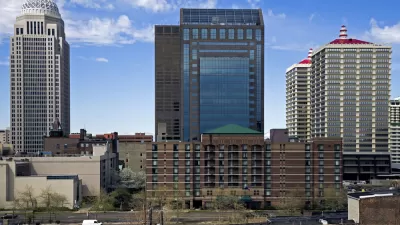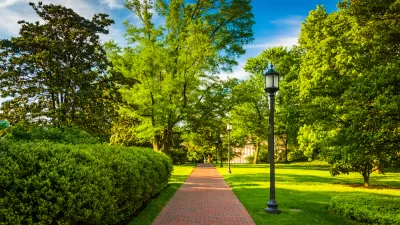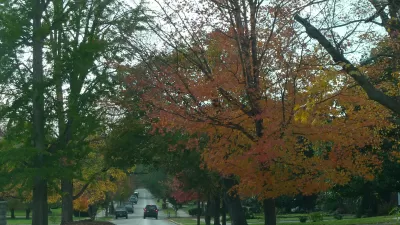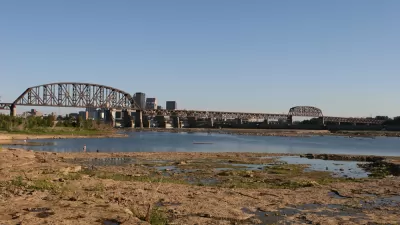Recent analysis shows that Louisville, Ky. suffers from the worst 'heat island' conditions among America's 50 largest cities. The city is also one of the few without a tree ordinance. Coincidence? Sarah Goodyear investigates.

Goodyear looks at the work of Brian Stone of the Urban Climate Lab at Georgia Tech, one of the country's leading researchers on the urban "heat island" effect — "the difference between the temperature of a major metro area and the surrounding countryside."
"Last year, he and his colleagues released an analysis of data [PDF] from the 50 largest cities in America. And it came as something of a surprise that Louisville, Ky. had the unhappy distinction of being on top."
"The average increase in the temperature difference between urban and rural environments in the Louisville area has been 1.67 degrees Fahrenheit every decade between 1961 and 2010," explains Goodyear. "That’s nearly double the rate of the next city on the list, Phoenix, which saw an average change of .96 degrees in the same period."
In addition to "the unfortunate meteorological conditions" of the Ohio River Valley, "another likely contributing factor is the lack of tree cover in Louisville," she notes.
“The tree canopy downtown is one of the sparsest of any city I have seen in the country,” Stone said. "The tree cover in Louisville’s larger metro area is around 30 percent, according to Stone’s research [PDF], with the urban core at just 10 percent. That compares to about 45 percent in the city of Atlanta."
"And that lack of greenery — unlike Ohio River Valley weather patterns or global warming — is something that Louisville’s municipal leaders could change."
FULL STORY: There Are Few Trees in Louisville, America’s Hottest City

Maui's Vacation Rental Debate Turns Ugly
Verbal attacks, misinformation campaigns and fistfights plague a high-stakes debate to convert thousands of vacation rentals into long-term housing.

Planetizen Federal Action Tracker
A weekly monitor of how Trump’s orders and actions are impacting planners and planning in America.

San Francisco Suspends Traffic Calming Amidst Record Deaths
Citing “a challenging fiscal landscape,” the city will cease the program on the heels of 42 traffic deaths, including 24 pedestrians.

Defunct Pittsburgh Power Plant to Become Residential Tower
A decommissioned steam heat plant will be redeveloped into almost 100 affordable housing units.

Trump Prompts Restructuring of Transportation Research Board in “Unprecedented Overreach”
The TRB has eliminated more than half of its committees including those focused on climate, equity, and cities.

Amtrak Rolls Out New Orleans to Alabama “Mardi Gras” Train
The new service will operate morning and evening departures between Mobile and New Orleans.
Urban Design for Planners 1: Software Tools
This six-course series explores essential urban design concepts using open source software and equips planners with the tools they need to participate fully in the urban design process.
Planning for Universal Design
Learn the tools for implementing Universal Design in planning regulations.
Heyer Gruel & Associates PA
JM Goldson LLC
Custer County Colorado
City of Camden Redevelopment Agency
City of Astoria
Transportation Research & Education Center (TREC) at Portland State University
Jefferson Parish Government
Camden Redevelopment Agency
City of Claremont





























